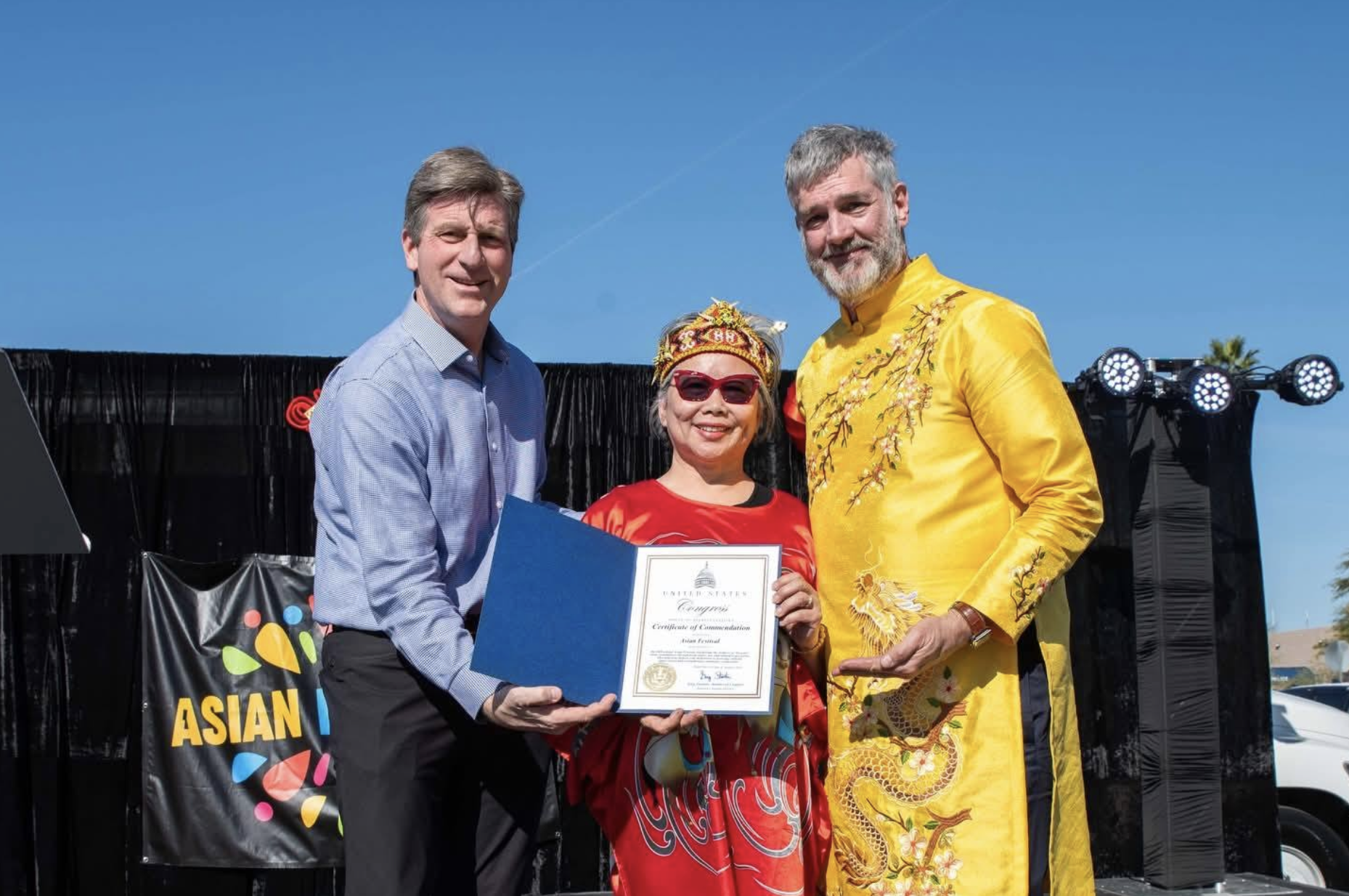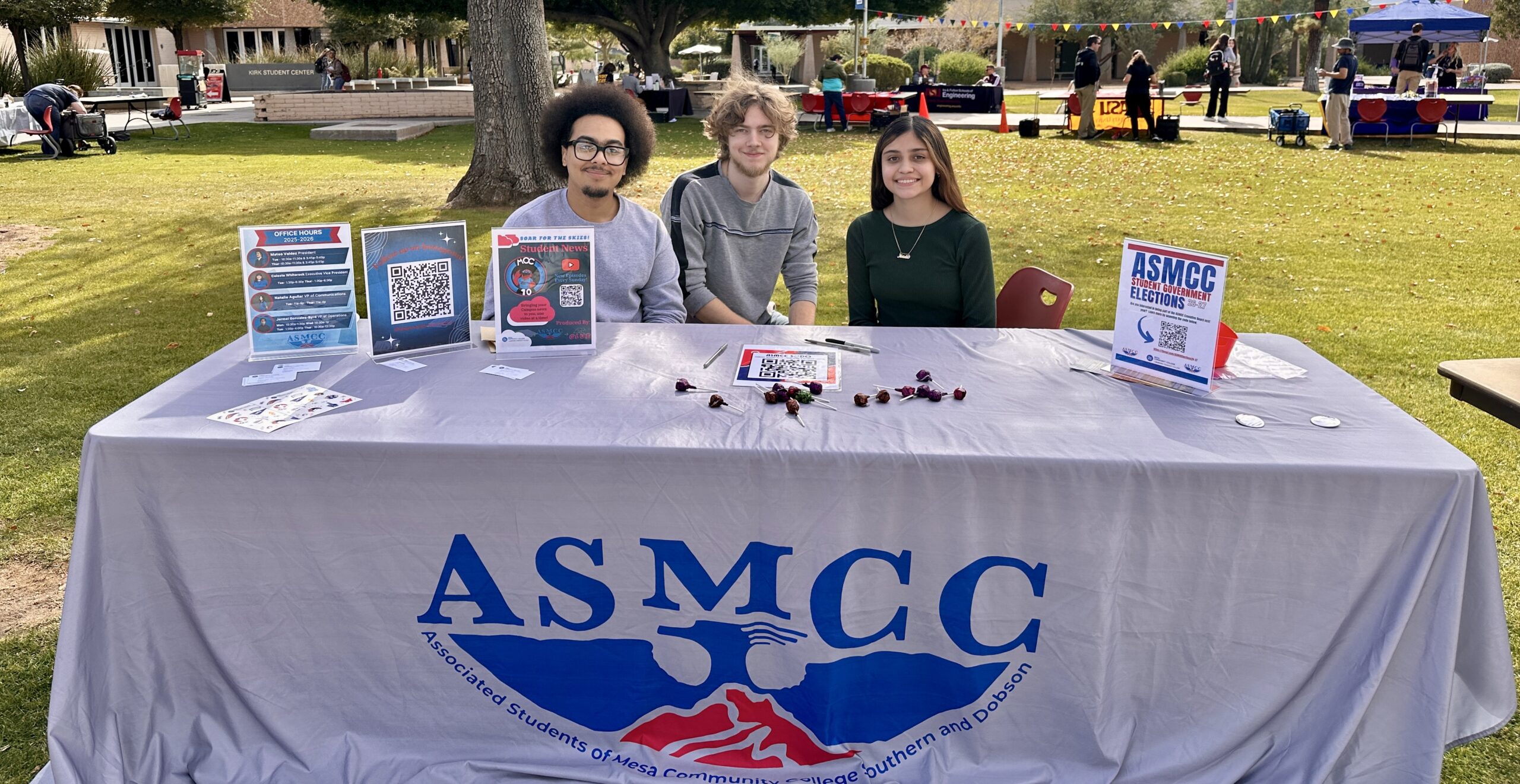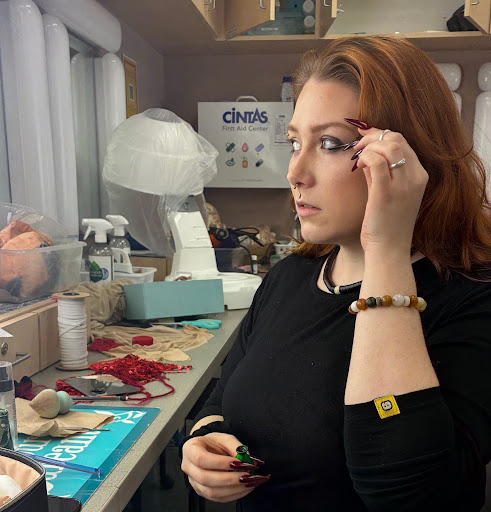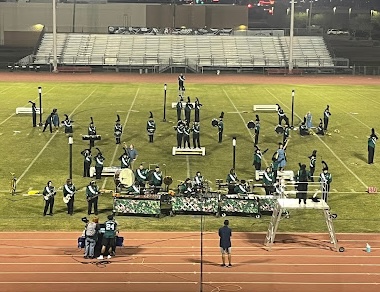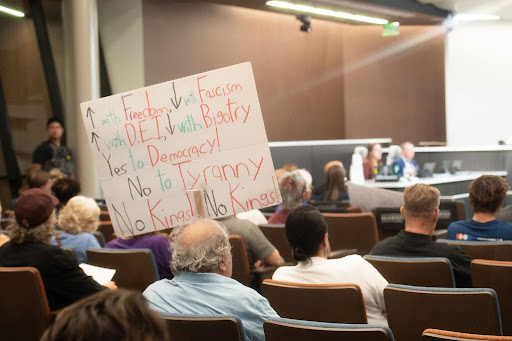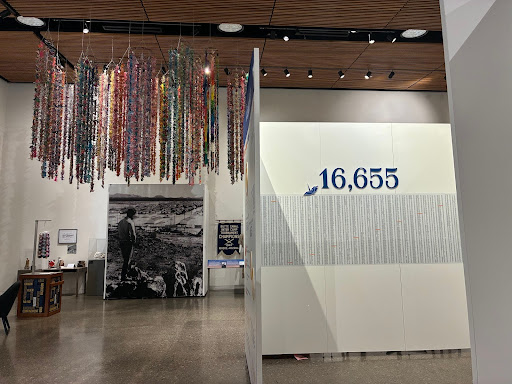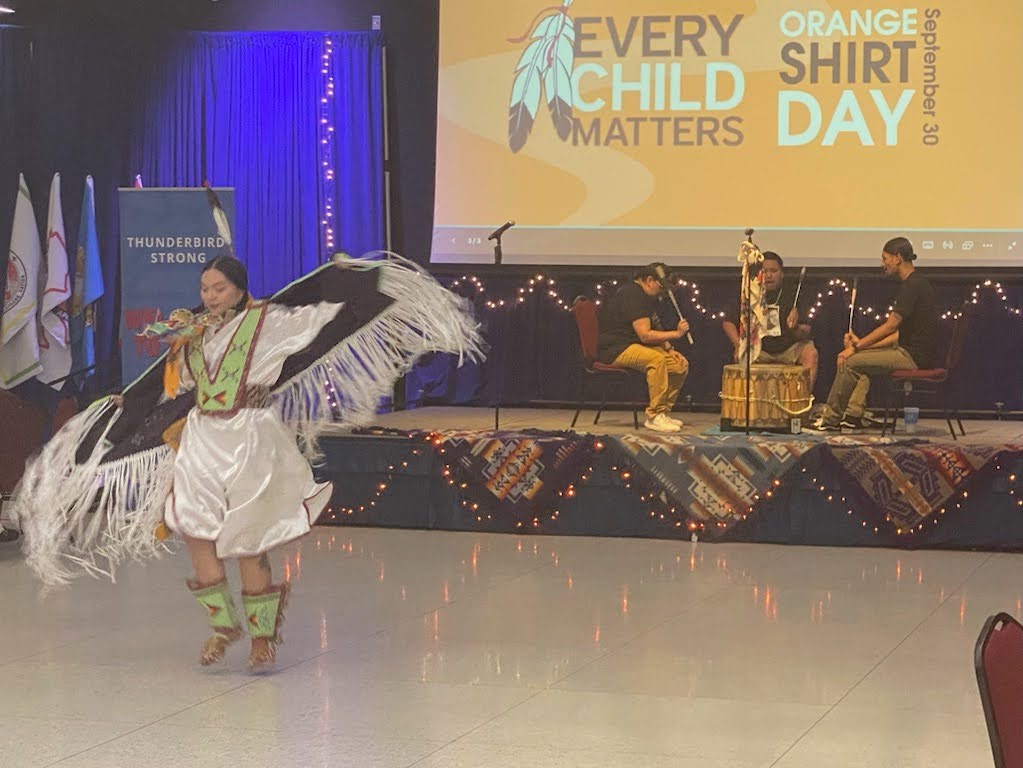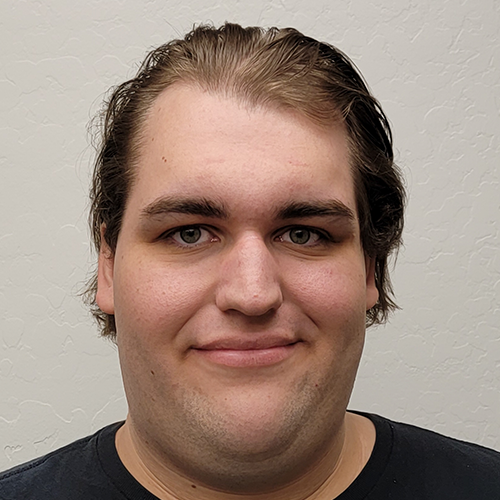Here’s how MCC honored Indigenous boarding school victims on Orange Shirt Day
The American Indian Institute hosted Mesa Community College’s third annual Orange Shirt Day event and the campus’s inaugural open mic, on Sept. 30 in the Navajo Room.
The event coincided with the National Day for Truth and Reconciliation, also known as Orange Shirt Day, a holiday of reflection and recognition of Native American trauma caused by specialized boarding schools in the United States and Canada, according to the Orange Shirt Society.
The event included vendors who mainly sold jewelry, which has significant meaning in Indigenous culture, according to Navajo vendor Triston Yazzie. Yazzie also expressed uncertainty about how selling jewelry brings awareness to the holiday, but believed that the jewelry’s cultural value has something to do with its relevance.
“[Boarding school students] couldn’t wear the jewelry…but jewelry, it takes them to Creator, the Great Spirit, to their own traditional, holy, spiritual beings,” Yazzie explained.
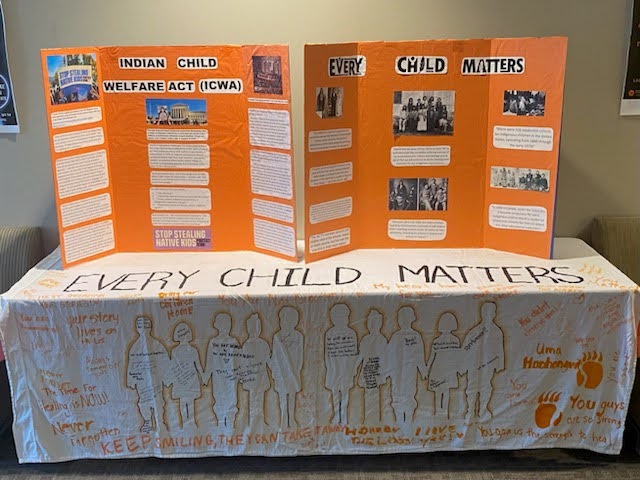
Though slated to begin at 6 p.m., the program started around 6:30 p.m., with some introductory statements from Margaret Talia White, a student services specialist at AII, event organizer and member of the Navajo Nation, and featured guest host Taté Walker, a Lakota author and poet, as well as a Navajo prayer.
Prior to sign-ups for acts, attendees helped themselves to food provided by Inter-Tribal Student Organization.
Miss Native MCC Kadence Sayles, a member of the Fort McDowell Yavapai Nation who is also of Lakota descent, shared the story of Phyllis Webstad, a Northern Secwepemc residential school survivor whose experiences inspired the holiday’s nickname.
As well as being a featured speaker and event organizer, Sayles shared her own backstory and performed an original song during the open mic.
“I found it important to not only build together what it means to be two-spirit, but also being a Native woman that identifies within the queer personalities that I represent,” Sayles said. “I promoted a piece that I wrote specifically for this Orange Shirt Day event to raise awareness for [‘Every Child Matters’] and what it means to have our ancestors participate in residential schools in the past,” Sayles continued.
“Every Child Matters” is a quote commonly associated with Orange Shirt Day, as those directly affected by the residential school systems were children, according to the Orange Shirt Society.
Among the attendees were students, staff, faculty and even community members. RaeTana Mannie, a MCC alumna of Navajo and Mexica descent, attended with her daughters. Mannie’s maternal grandmother, as well as some of her uncles, were victims of boarding schools.
“Not everyone feels comfortable talking about it, unfortunately, but I’m lucky enough to have gone through the healing journey to kind of understand what happened, why it happened and how to recover from it,” Mannie stated.
Pieces performed throughout the night consisted mainly of original poetry, but also included dances performed by MCC alumna Renae Blackwater, accompanied by drum group Northern Avenue, and Chi’Chino Spirit, an Akimel O’odham dance group.
Raegen Ellis, a psychology student and member of the Navajo Nation, shared her paternal great-grandmother’s experience in boarding school and how her family’s tumultuous history led to generational trauma years later.
“There [were] no role models in my life, and I had to step up and be the role model,” Ellis said. “I love seeing cultural performances as well because it makes you have that sense of feeling that you’re happy, because it’s like we’re continuing what we’re doing and we’re still here [and] resilient,” Ellis added.
Anthony Neztsosie, an undeclared major who is also a member of the Navajo Nation, did not originally plan to sign up for the open mic, but reminisced about his family’s history of addiction and mental health struggles, especially among the men.
“As Navajo men, we need to start expressing ourselves because it’s overall going to be better [for] the community and it’s going to be better for families,” Neztsosie affirmed.
Walker thanked everyone for coming and encouraged attendees to stay and listen to more stories and performances. Though scheduled to end at 8 p.m., performances ran until after 9 p.m.
“[There are] a whole lot of things that [have] happened to the Native Americans throughout history. A lot of negativity, and we get to express ourselves here at Open Mic and we get to hear other people’s stories and what they went through,” Neztsosie said, reflecting on the night’s occurrences.
